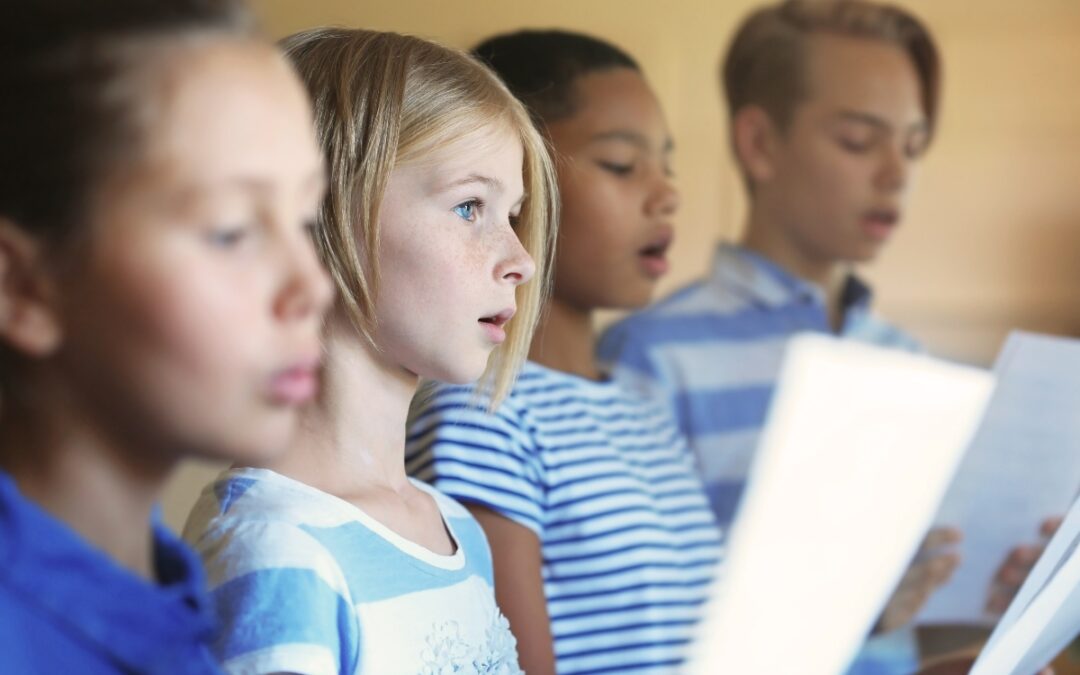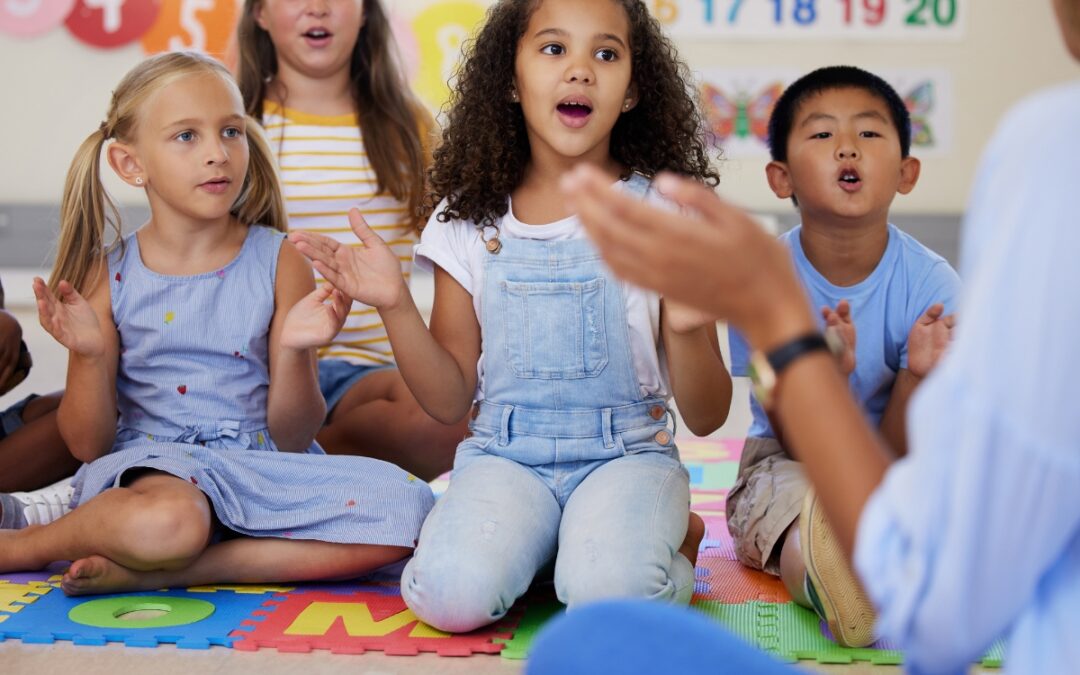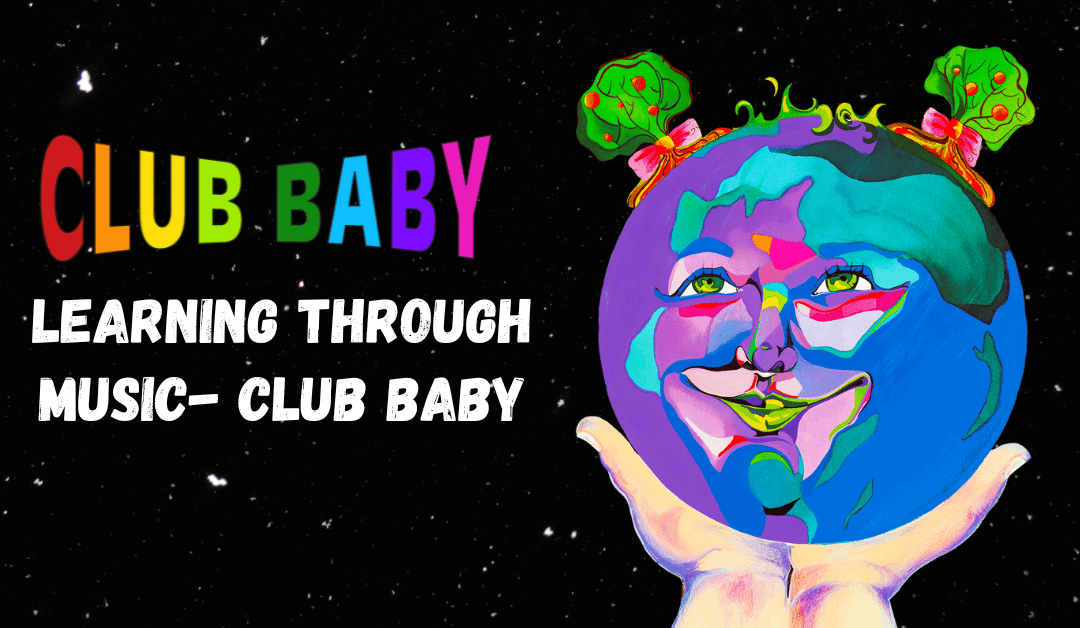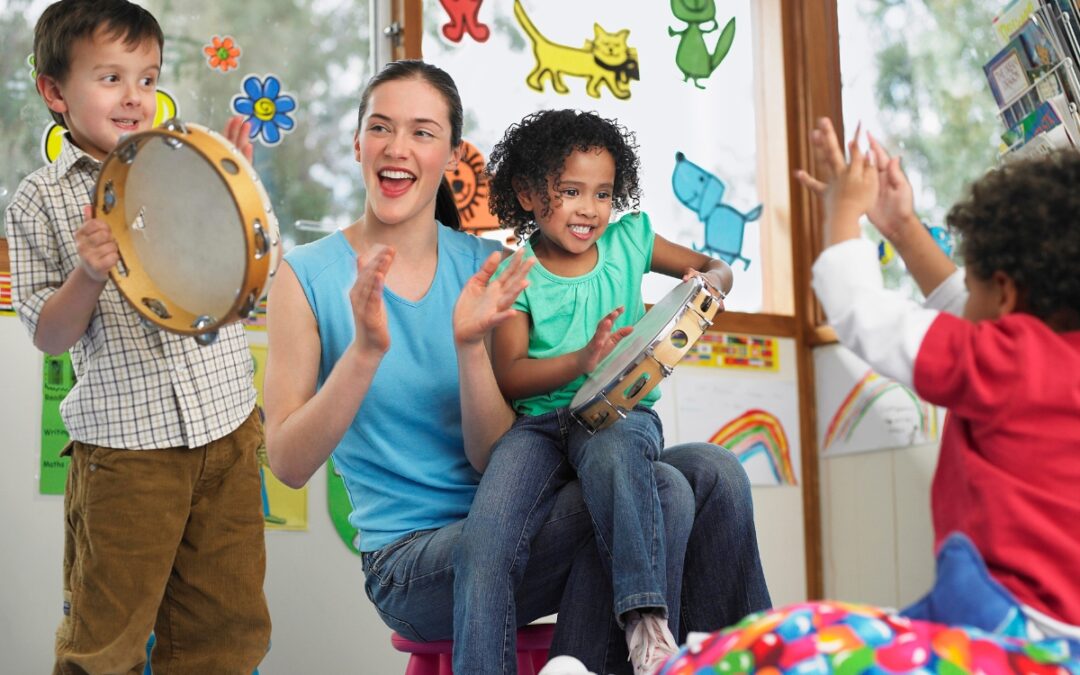
by | Mar 10, 2023 | Music & Entertainment
Music has always been an important part of human life and it has a profound impact on our emotions, mental state, and overall well-being. The power of music to evoke emotions and create an atmosphere is especially pronounced in children. Children are naturally curious and imaginative, and music provides a magical and uplifting experience that can enhance their development in many ways.
In this blog, we will discuss the impact of magical music on children and why it is so important for their growth and happiness.
Emotional connection: Magical music has the power to evoke emotions in children, helping them understand and process their feelings in a fun and engaging way. It can also provide a sense of comfort and security during times of stress or anxiety.
Stimulation of imagination and creativity: Magical music can stimulate children’s imaginations and creativity, inspiring them to think outside the box, explore new ideas, and develop their storytelling skills.
Cognitive development: Listening to music can improve children’s memory and enhance their ability to learn new information, while musical training has been shown to improve their spatial reasoning skills.
Social skills: Listening to music is often a communal experience, and children can bond over their shared love for music. This can lead to the development of social skills such as empathy, cooperation, and teamwork.
Empowerment and self-esteem: Magical music can provide a sense of empowerment and self-esteem for children, inspiring them to believe in themselves and their abilities.
Incorporating magical music into a child’s life can provide a magical and uplifting experience that will positively impact their growth and happiness. Available on online platforms like Club Baby, educational songs in the form of rhymes with songs are an easy and fun way to incorporate music into a child’s life. So why not make music a part of your child’s routine and watch as they soar to new heights of imagination and creativity?
FAQ’s
What is the impact of magical music on children’s emotions?
A: Magical music has the power to evoke emotions in children, helping them understand and process their feelings in a fun and engaging way. It can also provide a sense of comfort and security during times of stress or anxiety.
How does magical music stimulate children’s imagination and creativity?
Magical music can stimulate children’s imaginations and creativity by inspiring them to think outside the box, explore new ideas, and develop their storytelling skills. Listening to magical music pieces can take children on a journey of their own, to a place where anything is possible.
What is the impact of music on children’s cognitive development?
Listening to music can improve children’s memory and enhance their ability to learn new information. Musical training has also been shown to improve their spatial reasoning skills, which can be beneficial for their future academic and professional success. Magical music, with its otherworldly melodies and fantastical themes, can captivate a child’s attention and help them retain information in a more engaging and memorable way.
How does music foster social skills in children?
Listening to music is often a communal experience, and children can bond over their shared love for music. This can lead to the development of social skills such as empathy, cooperation, and teamwork. Playing music as a group, such as in a school band or choir, can help children develop leadership skills, teamwork, and responsibility.
What is the impact of magical music on children’s self-esteem and empowerment?
Magical music can provide a sense of empowerment and self-esteem for children, inspiring them to believe in themselves and their abilities. Listening to music can make children feel good about themselves, and learning to play an instrument or sing can give them a sense of pride and accomplishment. The themes of adventure, bravery, and overcoming obstacles in magical music can inspire children to be confident and believe in their abilities.

by | Mar 8, 2023 | Music & Entertainment
Music has the power to transport us to a different world, and it’s no different for children. From nursery rhymes to poems set to music, children are exposed to a magical world of sound and rhythm. But, did you know that these musical experiences can greatly impact a child’s development?
Here are 7 ways magical music can affect a child’s growth and well-being.
Magical Music and Child Development
Improves Cognitive Development: Studies have shown that musical experiences can improve a child’s cognitive development, including language skills and problem-solving abilities. Songs can help children learn language easier and more accurately with music, rhythm and songs.
Enhances Emotional Development: Music can also have a significant impact on a child’s emotional development. Rhymes and poems set to music can help children understand and express their emotions.
Boosts Memory and Attention Span: Regular exposure to music can help children build their memory skills and attention span, making it easier for them to focus and retain information. Catchy songs help children remember new words in fun and creative ways.
Encourages Creativity: Children who are exposed to music and songs from an early age are more likely to develop their creativity and imagination. This is why nursery rhymes and poems are such an important part of childhood.
Supports Language Development: Nursery rhymes and songs can help children build their language skills, by teaching them new words and sounds, and improving their pronunciation.
Fosters Social Skills: Singing and playing musical instruments with other children can help improve a child’s social skills and encourage teamwork.
Develops a Love for Music: Perhaps the most important way magical music can affect a child’s development is by instilling a love for music that will last a lifetime. When children enjoy singing and playing musical instruments, they are more likely to continue this love into adulthood.
In conclusion, musical experiences can greatly affect a child’s development in several ways. So, next time you sing a nursery rhyme or listen to a poem set to music, remember the magical impact it can have on a child’s growth and well-being.
If you want to introduce your children to inspiring, educational, and lively songs, you should check Club Baby!

by | Nov 28, 2022 | Music & Entertainment
Music has been proven to have a powerful effect on the development of toddlers. It can be used to help children learn, build relationships, and express themselves in ways that they may not be able to do with words. Music can also provide an important outlet for emotional expression and create a sense of connection between parents and their children.
In this blog post, we’ll explore some of the ways music can benefit toddlers’ physical, mental, social and emotional growth. We’ll also look at how you as a parent or caregiver can use music to support your toddler’s development in these areas.
So let’s get started!
Music For Toddlers and Young Learners
Physical Development: Music can be used to help your toddler with their physical development. It’s an effective way to encourage gross motor skills like running and jumping, as well as fine motor skills such as hand-eye coordination. Listening to music and playing drums or other instruments can also help toddlers learn about rhythm, beat, and tempo. This helps them understand the concept of time and how to keep a consistent beat when playing music.
Mental Development: Music can also help boost your toddler’s mental development. Listening to and playing music can help toddlers recognize patterns, improve their problem-solving skills, develop an understanding of math concepts, and even enhance their language skills. They can also learn to identify different instruments and sounds, as well as gain an appreciation for music from different cultures.
Social and Emotional Development: Music can be a powerful tool for developing social skills and emotional intelligence in toddlers. Singing together with your toddler helps them understand how their voice fits into a group setting, while playing musical games together helps them learn to collaborate and take turns. Music can also encourage toddlers to express themselves in a healthy way, helping them find their own unique voice.
Didactic Learning and Growth: Music can also be used to help toddlers learn specific concepts and skills. For example, you can use music to teach them about different animals, shapes and colors, numbers and letters. Songs with rhymes are a great way to increase language development in toddlers and improve their reading skills later on in life.
Now that you know just how important music can be for your toddler’s development, it’s time to start incorporating it into their daily activities. Here are some ways you can use music in your home:
- Play recorded songs or instrumental tracks that expose toddlers to a variety of genres and styles.
- Sing nursery rhymes and other fun songs with your toddler to help them with language development.
- Encourage them to listen to upbeat, lively and catchy educational songs on online platforms such as Club Baby.
- Create fun musical games that involve movement, like a freeze dance or the hokey pokey.
- Use music as a way to transition between activities, providing cues for when it’s time to change.
So as you can see, music has a wide range of benefits for toddlers’ development. Incorporating fun and engaging musical activities into your toddler’s day is an easy and enjoyable way to support their physical, mental, social and emotional growth.
So let the music play!

by | May 26, 2022 | Music & Entertainment
Music has been an integral part of human culture since the dawn of time. It is a powerful tool that can be used to teach children many important lessons and topics. From understanding emotions, expressing themselves creatively, developing rhythmic abilities, learning about different cultures and more – music offers a wealth of opportunities for kids to learn in fun and engaging ways.
In this blog post, we will discuss some of the most important topics for kids to learn through music.
What can you learn through music?
The first important topic that children can learn through music is rhythm. Having a strong sense of rhythm will help kids in many areas of life, from playing sports to even learning language and math skills. Learning how to keep a steady beat and mastering the ability to stay on track with different tempos and rhythms can help them develop important skills for other areas of life.
The second topic that kids can learn through music is self-expression. Music gives children the opportunity to express their feelings and emotions without having to use words. Through playing instruments, singing, or listening to different genres of music – children are given a voice that they can use to express themselves in a creative way.
Thirdly, music can also help kids to learn about different cultures. By listening to and performing different genres of music from around the world, children can gain an understanding of other cultures and their histories. This can be an incredibly powerful way for them to develop empathy and a greater appreciation for diversity in our society.
Art appreciation is another important topic for kids to learn through music. By exposing them to different forms of art – from classical music to contemporary styles, children can start to develop a deeper appreciation for art in general. This appreciation can help them better understand the world around them and become more appreciative of other cultures and lifestyles.
Music can teach kids about science and sustainability as well. Age appropriate lyrics can help children learn more about their environment. By teaching them about the importance of taking care of our planet, kids can gain a better understanding of sustainability and environmental impacts.
Finally, music is also a great way to teach children about their own emotions and how to cope with difficult situations. By using lyrics and melodies as tools, children can use music to process feelings such as anger, sadness, fear, and joy. This can be an incredibly powerful way to help them develop healthy coping skills for their future.
These are just a few of the important topics that kids can learn through music. Music is a powerful tool that can teach children so much about the world around them and help foster healthy development. By incorporating music into their lives, children can gain a greater understanding of the world in new and exciting ways.
There are countless other ways that music can help children develop important skills and knowledge. We encourage you to explore the different ways that music can have a positive influence on your child’s development.
If you are looking for more information about how to use music to help your kids learn, we recommend checking out our website for the most unique and educational nursery rhymes!

by | Mar 26, 2022 | Music & Entertainment
Children’s music plays an important role in the education and development of children. From educational songs for babies to those for primary school students, these songs are designed to help young minds learn and grow in a fun and engaging way.
One of the key benefits of children’s music is its ability to teach important concepts and skills through catchy, easy-to-remember songs. For example, educational songs for 1st graders can help teach the alphabet and numbers, while those for middle school students can help with subjects like science and history.
Another benefit of children’s music is that it can help to improve language and listening skills. Many educational songs for students include lyrics that are easy for kids to sing along with, and this can help them to develop their pronunciation, vocabulary, and listening skills.
Additionally, children’s music can be a great way to introduce kids to different genres of music, cultures and traditions. Classic children’s songs like the alphabet song and other traditional nursery rhymes are a great way to expose children to different styles of music, and can be a great way to get them interested in music from an early age.
Moreover, easy songs for kids to sing and kid songs to sing lyrics are also great ways to boost their confidence and self-esteem. Singing songs with others can be a great way to build a sense of community and belonging, and can help kids to develop a sense of pride in their abilities.
Looking to teach your children easy and educational songs? Clubbaby is here for you!
If you’re looking for a great resource for children’s music, look no further than clubbaby.com. Our website features a wide variety of educational and entertaining songs for children of all ages. From catchy, easy-to-remember songs for babies and toddlers to more complex songs for primary school students, we have something for every child.
Our selection of songs is educational, uplifting, creative and imaginative, making it a perfect fit for children. We understand the importance of providing children with positive and uplifting content, and we make sure that all our songs reflect this.
In addition to our extensive selection of songs, we also offer a variety of interactive features that make learning even more fun. Our website includes games and activities that are designed to help children learn and practice the concepts and skills they’re learning through the songs.
At clubbaby.com, we believe that music is a powerful tool for learning and growth, and we’re dedicated to providing children with high-quality, engaging music that will help them learn and thrive. So, visit our website today and start exploring the world of children’s music with your little ones!

by | Feb 26, 2022 | Music & Entertainment
English is a widely spoken language, and learning it at a young age can provide children with many benefits. From improving their communication skills to opening up new opportunities in education and career, teaching English to young learners is an important step in their development.
One of the key benefits of teaching English to young learners is that it can help to improve their language and listening skills. Children who are exposed to English at a young age are more likely to develop a good understanding of the language and be able to use it effectively.
Another benefit of teaching English to young learners is that it can help to improve their cognitive skills. Studies have shown that children who learn a second language at a young age tend to have better problem-solving and critical thinking skills.
Additionally, teaching English to young learners can also help to introduce them to different cultures. The English language is spoken in many countries around the world, and learning it can give children a better understanding of the cultures and customs of these countries.
Moreover, teaching English to young learners can also help to boost their self-esteem and confidence. Being able to speak another language can be a great source of pride for children, and can help them to feel more confident in their abilities.
We At Club Baby…
We understand the importance of teaching English to young learners. That’s why we offer a wide range of interactive and engaging music for teaching English to children. Our resources are designed to make learning fun and easy for children, through songs that will help children to practice their listening, speaking, reading, and writing skills.
At Club Baby, we believe that music is a powerful tool for learning and growth, and we are dedicated to providing children with high-quality, engaging music that will help them learn and thrive. We create and produce songs that are new, lively and positive, making it a perfect fit for children. Our nursery rhymes are especially popular among children, as they are fun and easy to learn with catchy lyrics and melodies. Additionally, we also feature songs that promote core values such as respect, kindness, and self-esteem. With our music resources for teaching English to young learners, children can have fun while learning something new!
If you’re looking to teach your children easy and educational songs, Club Baby is here to help. Our website features a wide variety of catchy, easy-to-remember songs for babies and toddlers to more complex songs for primary school students, so you can find something that is perfect for your child’s age and skill level. Whether you’re looking for songs that teach the alphabet, numbers, or other important concepts, we have something that will be perfect for your child.
So, if you’re looking for a great resource for children’s music, look no further than Club Baby. Visit our website today and start exploring the world of children’s music with your little ones!





